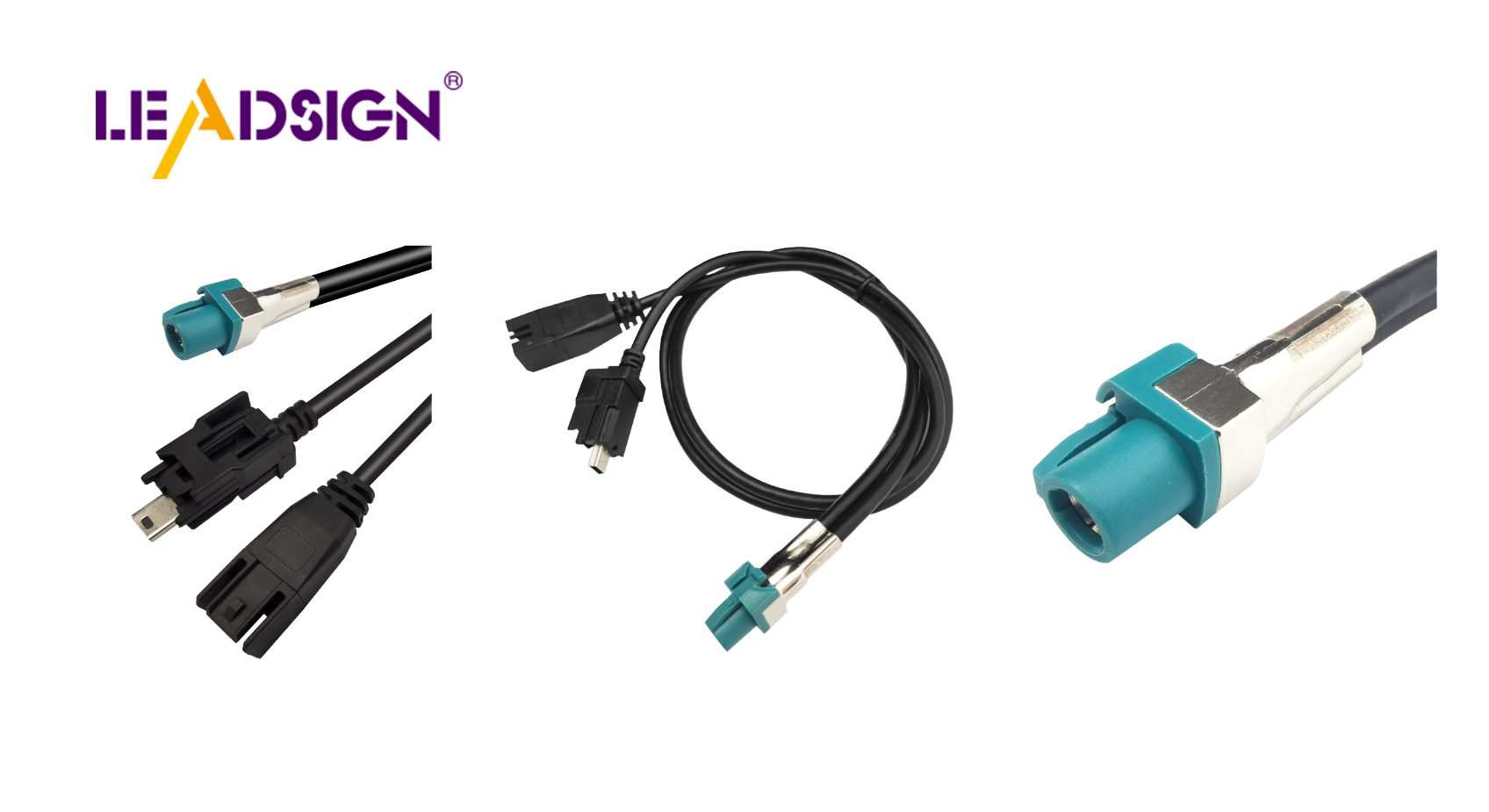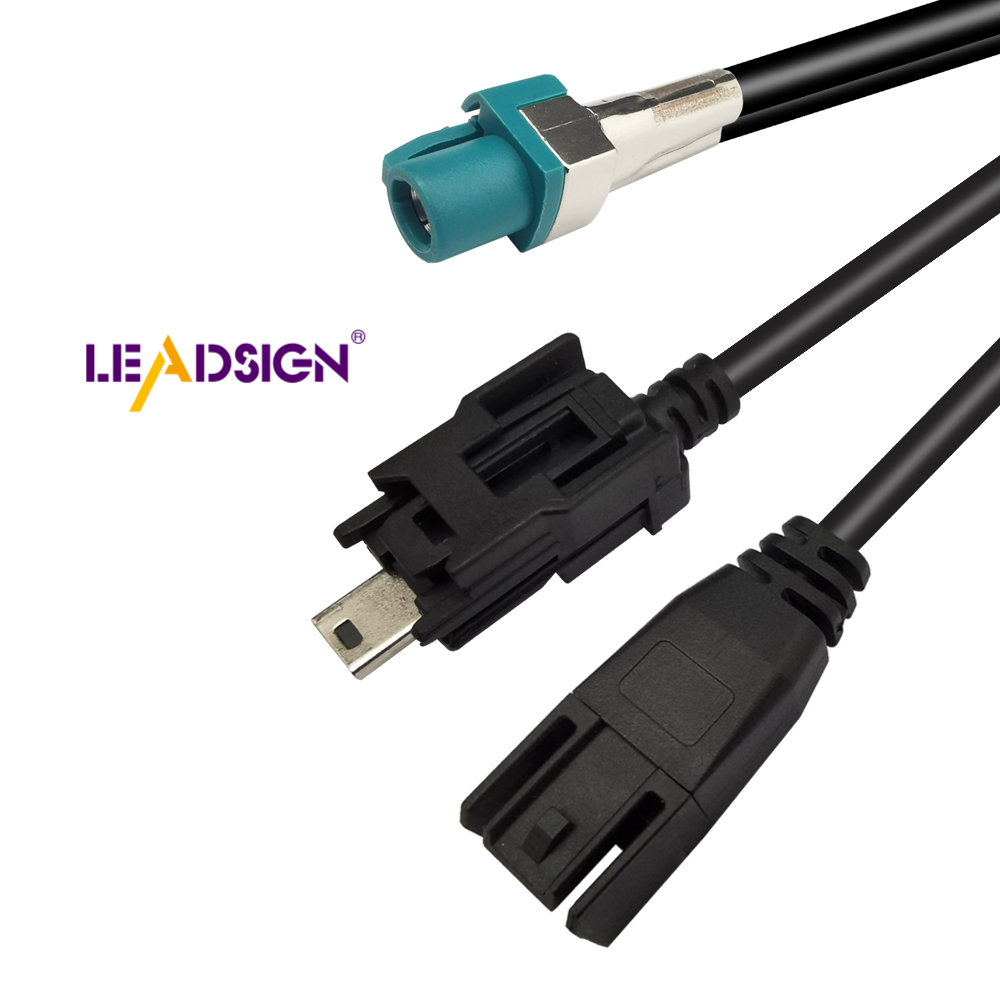Comparing Automotive Wiring Connector Types for Optimal Performance

Automotive electrical connectors play a crucial role in vehicle wiring systems. They ensure reliable connections for optimal performance. Various types of connectors are available, including blade, pin, and Deutsch connectors, each serving specific purposes. The materials and design of these connectors impact their quality and durability. Understanding the different automotive electrical connectors types is essential for selecting the most suitable option to enhance vehicle functionality.
Understanding Car Wiring Connectors
Main Features
Material Make-Up
Car wiring connectors use plastic and metal. Plastic parts are light and strong, good for many uses. Metal parts last long and resist weather. Together, they make connectors tough for car use.
Design and Build
Car connectors are made to stay connected well. They have locks to stop them from coming apart by accident. Some have many pins or blades, based on the connector type. This helps send power and signals in the car.
Uses in Cars
Power Systems
In cars, connectors link power systems like batteries and lights. Good connectors help power flow well, keeping the car safe and working right.
Communication Systems
Connectors also link communication tools in cars. They connect things like radios, GPS, and sensors. Stable links help these systems work well, making driving better.
Types of Automotive Wiring Connectors

Blade Connectors
Blade connectors are often used in car wiring. They have flat metal parts that fit into slots. This makes sure they connect well.
Types of Blade Connectors
Standard Blade Connectors: These come in different sizes for various wires. They work in low power settings.
Mini Blade Connectors: Smaller than standard ones, they fit tight spaces. Great for cramped car areas.
Micro Blade Connectors: The tiniest type, good for complex wiring where space is tight.
Applications of Blade Connectors
Blade connectors are used in many car parts:
Fuse Boxes: They link fuses to the system, keeping circuits safe.
Lighting Systems: They connect lights, making sure power flows well.
Dashboard Components: They join dashboard parts like gauges and switches to the car's network.
Pin Connectors
Pin connectors are another choice for car wiring. They have round pins that go into sockets, making a strong connection.
Types of Pin Connectors
Circular Pin Connectors: Round design fits tough spots well.
Rectangular Pin Connectors: Rectangular shape works in tight wire setups.
Miniature Pin Connectors: Small pin connectors fit tiny spaces.
Applications of Pin Connectors
Pin connectors are common in cars:
Engine Control Units (ECUs): Link ECUs to sensors and help manage engines.
Transmission Systems: Join transmission modules to the electrical system.
Airbag Systems: Ensure airbags connect safely to the safety network.
Other Automotive Electrical Connector Types
Deutsch Connectors
Deutsch connectors are strong and easy to use. Their design handles tough conditions well.
Applications of Deutsch Connectors
Deutsch connectors shine in these uses:
Off-Road Vehicles: Tough enough for rough roads.
Heavy-Duty Trucks: Keep connections steady in big trucks.
Agricultural Equipment: Stay connected in farm machines, improving work efficiency.
Molex Connectors
Molex connectors offer flexible solutions for car wiring needs. Different setups fit various wires and uses.
Applications of Molex Connectors
Molex connectors are found here:
Infotainment Systems: Join audio and video parts for smooth entertainment.
Navigation Systems: Link GPS units to the car's system for accurate directions.
Climate Control Systems: Help HVAC systems connect, keeping temperatures just right.
Picking the Best Connector for Great Performance
Choosing the right car connectors is important for good performance. This part explains what to think about and tips for picking the best ones.
Things to Think About
Power Needs
When picking connectors, check the car's power needs. Different parts need different power levels. For example, engine control units need strong connectors that don't get too hot. Knowing these helps pick connectors that send power well.
Weather Conditions
Weather affects which connector to choose. Cars face hot and cold weather. Connectors must handle this without breaking. Moisture, dust, and shaking can hurt them too. Pick connectors with good seals and strong materials for tough places.
Tips for Choosing
Fit with Car Systems
Connectors must fit with car systems well. They should fit with the car's wires easily. Wrong connectors can cause bad links and problems. Check that chosen connectors work with the car's design and wiring.
Strength and Lasting Power
Strength is important when choosing connectors. Good ones last long without breaking down. They should lock tight to stop coming apart by mistake. Strong connectors save money on repairs and make cars more reliable.
By thinking about these things and following these tips, people can pick the best car connectors for their cars. This careful choice makes cars work better, stay safe, and run smoothly.
Car wiring connectors are important for how well cars work. Different types like blade, pin, and Deutsch connectors have special jobs and benefits. Picking the right one means knowing power needs and weather effects.
"The best connector helps cars work great for a long time," experts say.
Choosing connectors that fit car systems and last long makes cars reliable. By thinking about these things, people can choose wisely to keep their cars running well and safely.
See Also
Enhancing Automotive Efficiency with HFM Connectors
Improving Automotive Data Transfer with Advanced Connectors
Essential Guide to HSD Connectors in Automotive Sector

